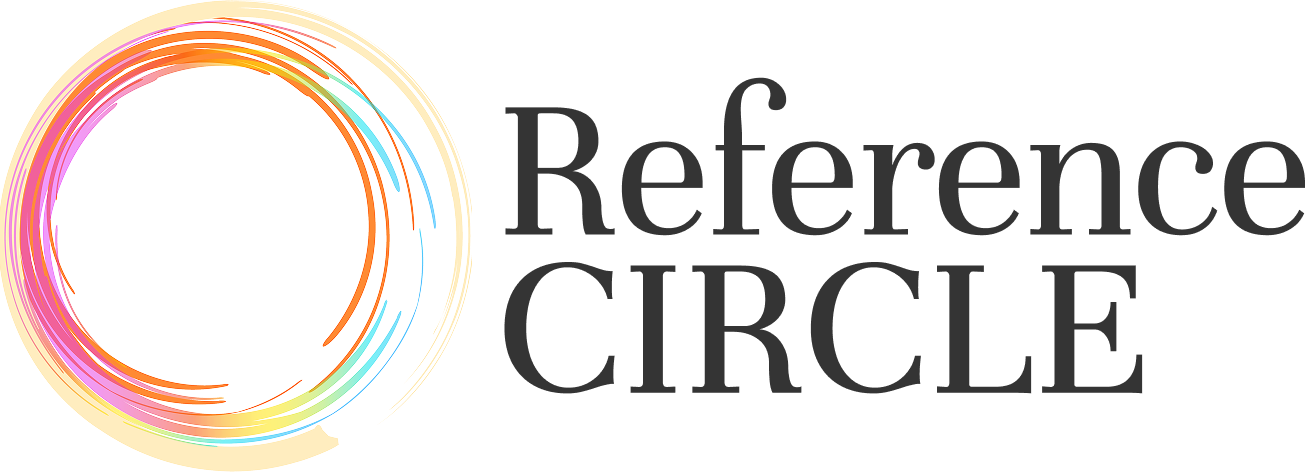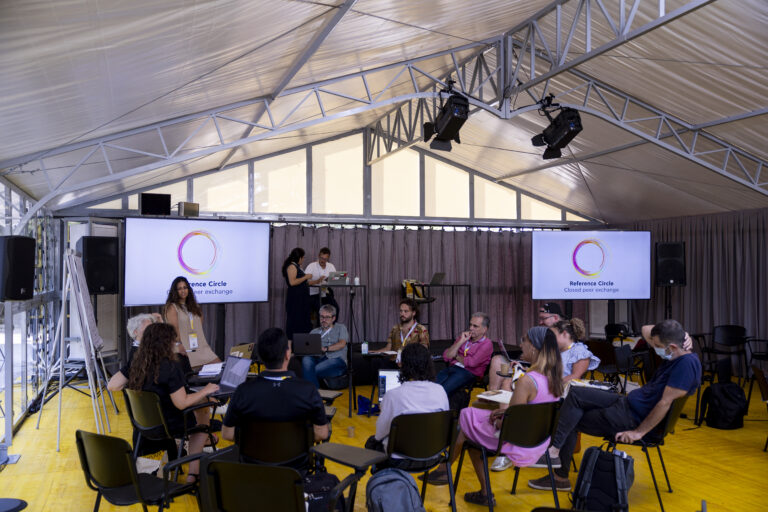Athens, September 2025 – Members of Reference and grantees of Civitates met again in Athens for an intensive day of knowledge-sharing, collaboration, and reflection during the iMEdD Forum 2025. The gathering brought together 32 participants from 14 countries, combining focused peer learning sessions with participation in the Forum’s wider international programme.
Taking place within one of Europe’s leading media events, the meeting offered a rare mix of inward reflection and outward exchange, reinforcing Reference’s commitment to building a stronger ecosystem for independent, public-interest journalism. The sessions focused on three key themes that remain at the heart of sustainable media practice: fundraising, audience engagement, and leadership and organisational culture.
Fundraising: challenges and creative solutions
The discussions on fundraising revealed both progress and persistent challenges. Across the network, participants shared examples of crowdfunding successes and stable revenue growth (in some cases by as much as 30%) through diversified models and strengthened community ties. Outlets such as Climática and Pismo presented practical case studies of campaigns that combined public trust with financial support, while others reported the benefits of core support from Civitates and new European-level grants.
Yet the conversations also highlighted the strain that continuous fundraising places on small editorial teams. “It’s insanely energy-consuming,” one participant said, summarising a shared concern that overreliance on short-term grants can drain focus from journalism itself.
To address these pressures, participants proposed a range of solutions: reader-driven products, membership patronage schemes, and partnerships with the arts, education, and creative sectors. Some discussed exploring social investment loans or collaboration with film and cultural initiatives. The session underscored a clear message, sustainable funding must move beyond fragmented project grants toward longer-term, trust-based support.
Engaging audiences and building loyalty
In sessions on audience engagement, participants shared experiments in bringing journalism closer to the communities it serves. From live journalism performances and pop-up newsrooms in schools to creative partnerships with artists and educators, the examples showed how independent media are innovating to rebuild civic trust and visibility.
Digital strategies were also a major focus. Members discussed how personalised newsletters, feedback loops, and audience surveys have improved loyalty and retention, with some reporting growth of up to 15–18% among paying members. Yet sustaining engagement remains difficult. Many outlets operate with limited staff capacity, and audience fatigue is a growing concern. The consensus was that engagement must be intentional, measurable, and authentic, rooted in mission rather than metrics.
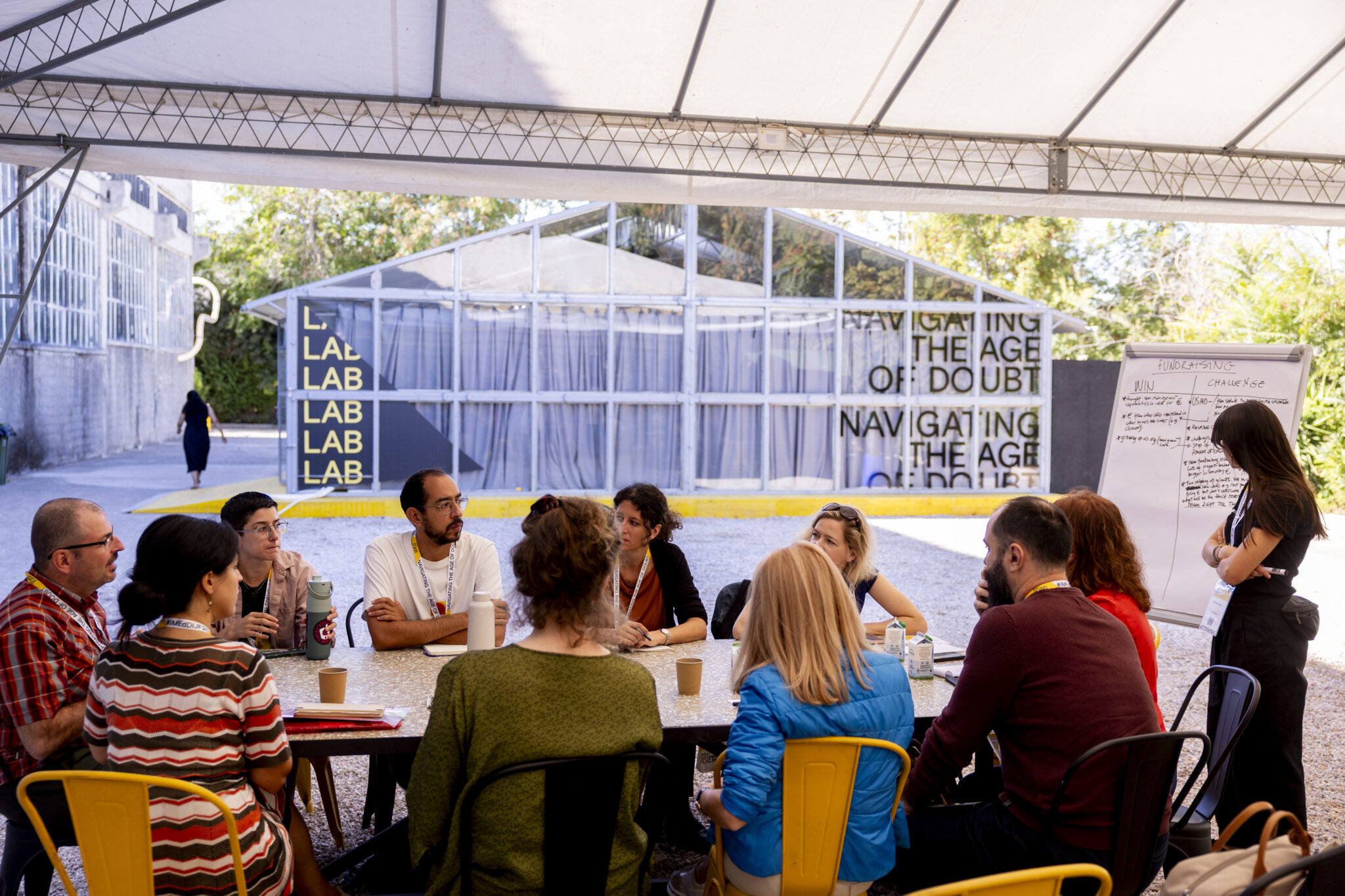
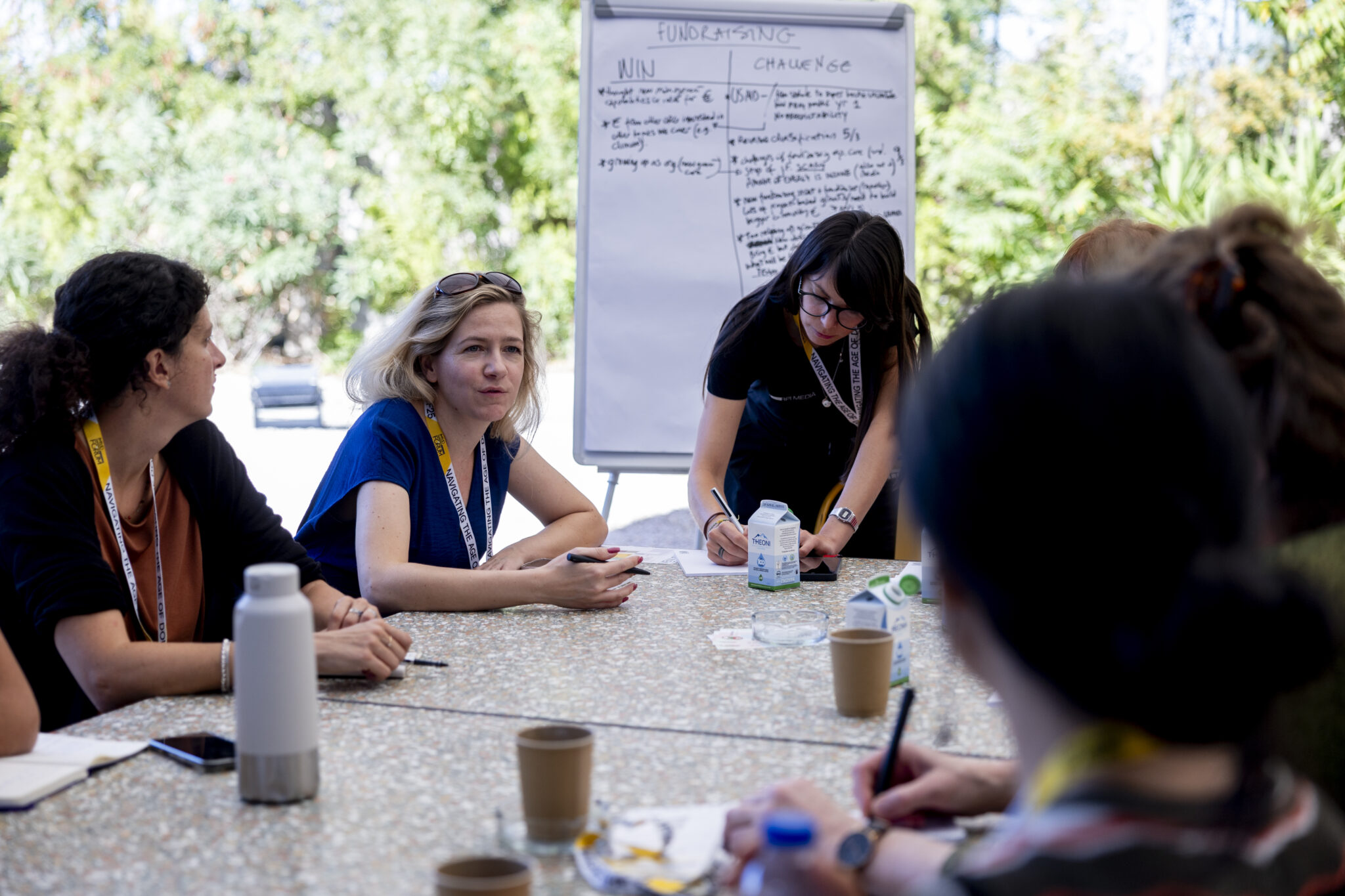
Leadership and organisational culture
A particularly open and candid part of the meeting focused on leadership and organisational culture. Facilitators from Direkt36 and Solomon led discussions on horizontal leadership, wellbeing, and conflict management. Participants spoke frankly about the pressures of running small, high-intensity teams and shared how redistributing responsibilities, introducing regular check-ins, and embedding wellbeing policies had improved morale and retention.
The takeaway was clear: healthy teams and transparent structures are not optional extras, they are fundamental to editorial independence. Several organisations committed to formalising wellbeing and conflict management mechanisms within their teams, while others proposed developing a shared expert directory of mediators, facilitators, and trainers to support leadership development across the network.
Reference at the iMEdD Forum: Women at the helm
Beyond the cohort sessions, Reference was represented at the Media Village of the iMEdD Forum, showcasing the network’s collaborative model and its role in strengthening Europe’s independent media. Reference members also participated in the panel “Women at the helm of journalism: truth and fiction.”
The discussion, featuring women leading independent media across Europe, explored the realities of newsroom leadership, where women make up 40% of journalists globally but hold only a quarter of top editorial positions. Lois Kapila, from the Dublin Inquirer, Teresa O’Connell from Are We Europe, Anuška Delić from Oštro, and Catarina Carvalho from Mensagem, discussed the double standards and structural barriers that persist in the industry, from unequal pay to the disproportionate psychological and digital harassment faced by women in leadership roles. The debate went beyond representation, highlighting how women leaders are actively reshaping journalism through collaboration, empathy, and transparency.
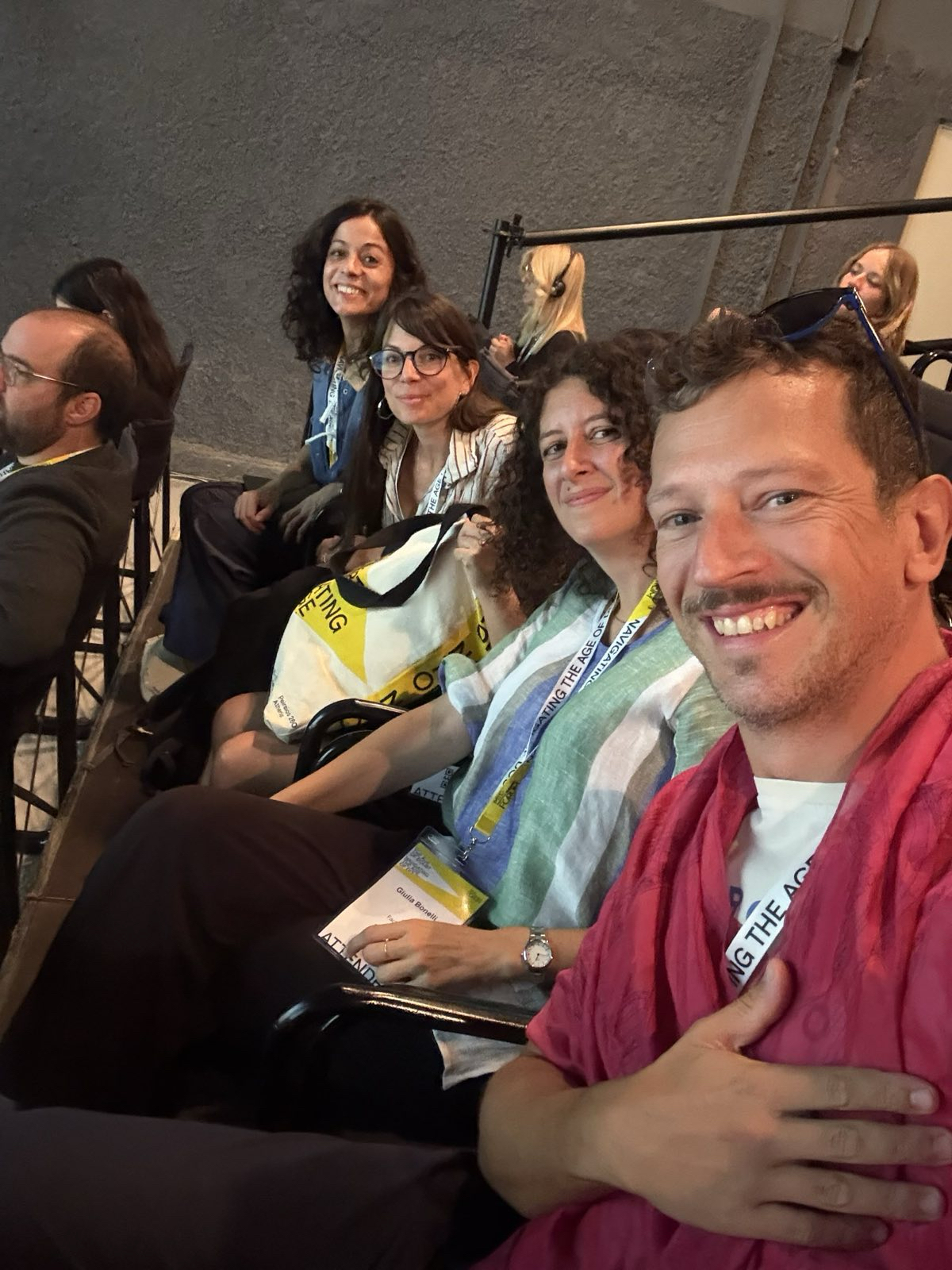
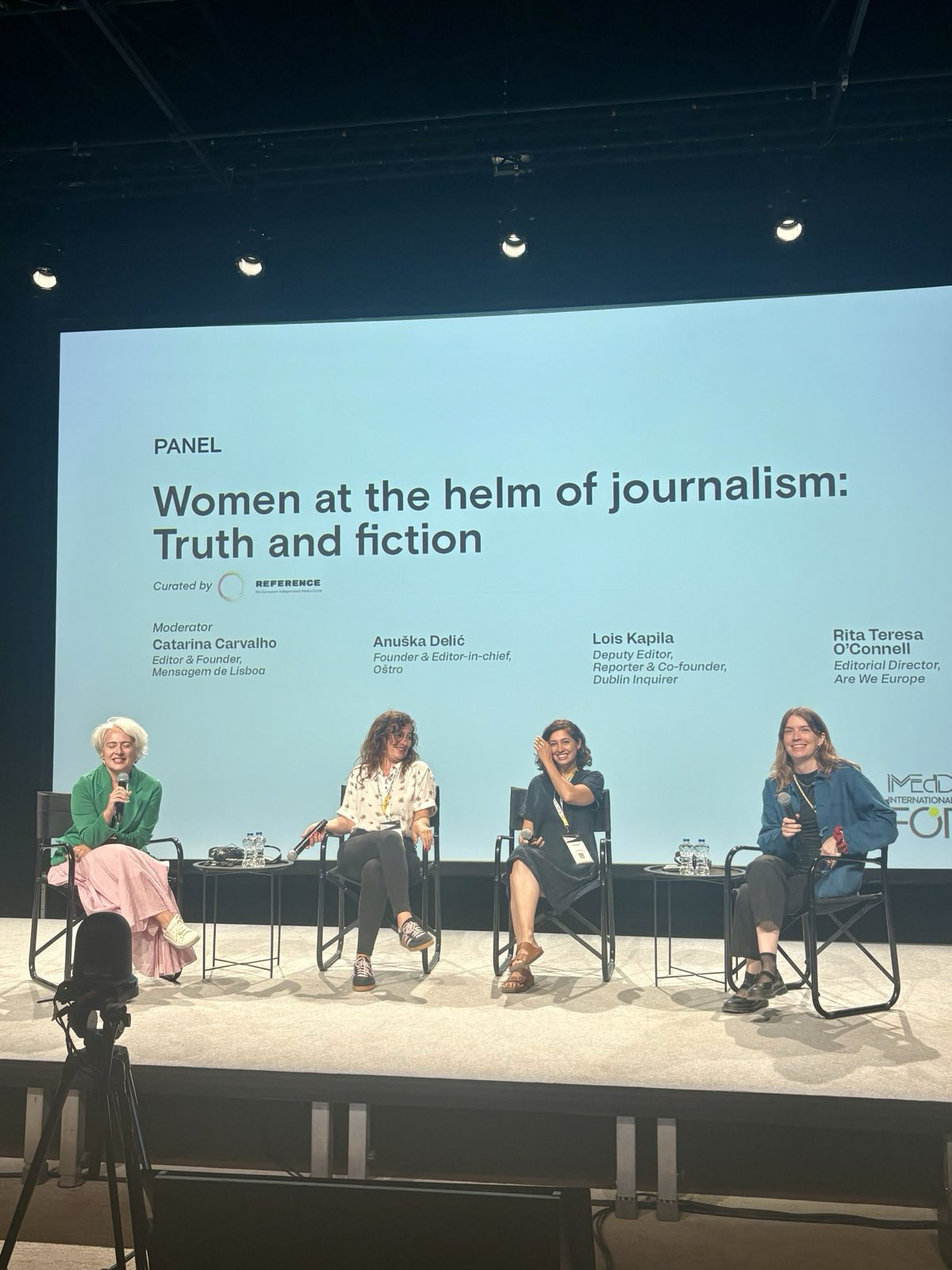
Strengthening the ecosystem
By the end of the Athens meeting, participants had identified clear next steps: formalising wellbeing practices, experimenting further with creative audience formats, and continuing to strengthen peer learning across Reference and Civitates. The discussions also opened the door to closer collaboration between the two communities, including the potential for Civitates grantees to join Reference as full members.
The Athens sessions demonstrated how combining governance with genuine peer exchange can lead to practical progress. Participants left with new tools, stronger relationships, and renewed confidence in the power of solidarity to sustain independent media.
